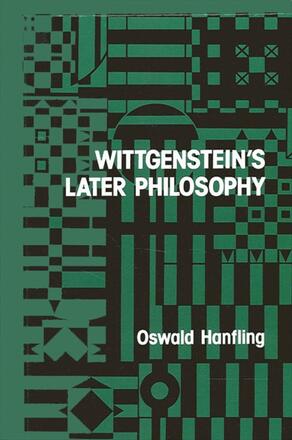
Wittgenstein's Later Philosophy
Alternative formats available from:
Description
"Philosophy," wrote Wittgenstein, "simply puts everything before us, and neither explains nor deduces anything. "
Hanfling takes seriously Wittgenstein's declaration of what he was doing, emphasizing Wittgenstein's rejection of theory and explanation in favor of 'description alone. ' He demonstrates the importance of Wittgenstein's philosophy to long-standing problems about language, knowledge, the mind, and philosophy itself. The book exposes common misunderstandings about Wittgenstein, and examines in detail the celebrated 'private language' argument.
Oswald Hanfling is Reader in Philosophy at the Open University and has held appointments at the universities of Kent and Salzburg. He is the author of Logical Positivism and the Quest for Meaning.